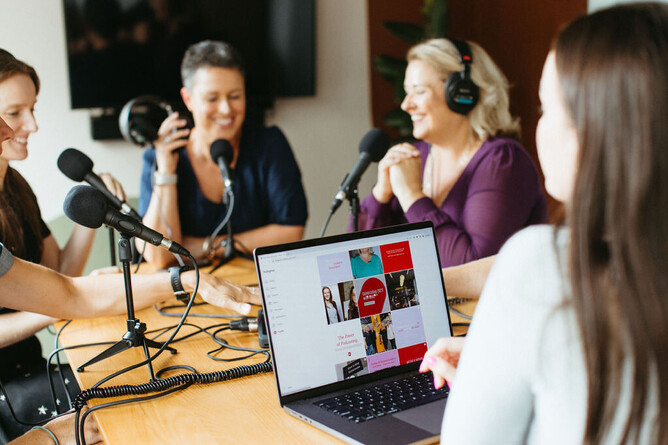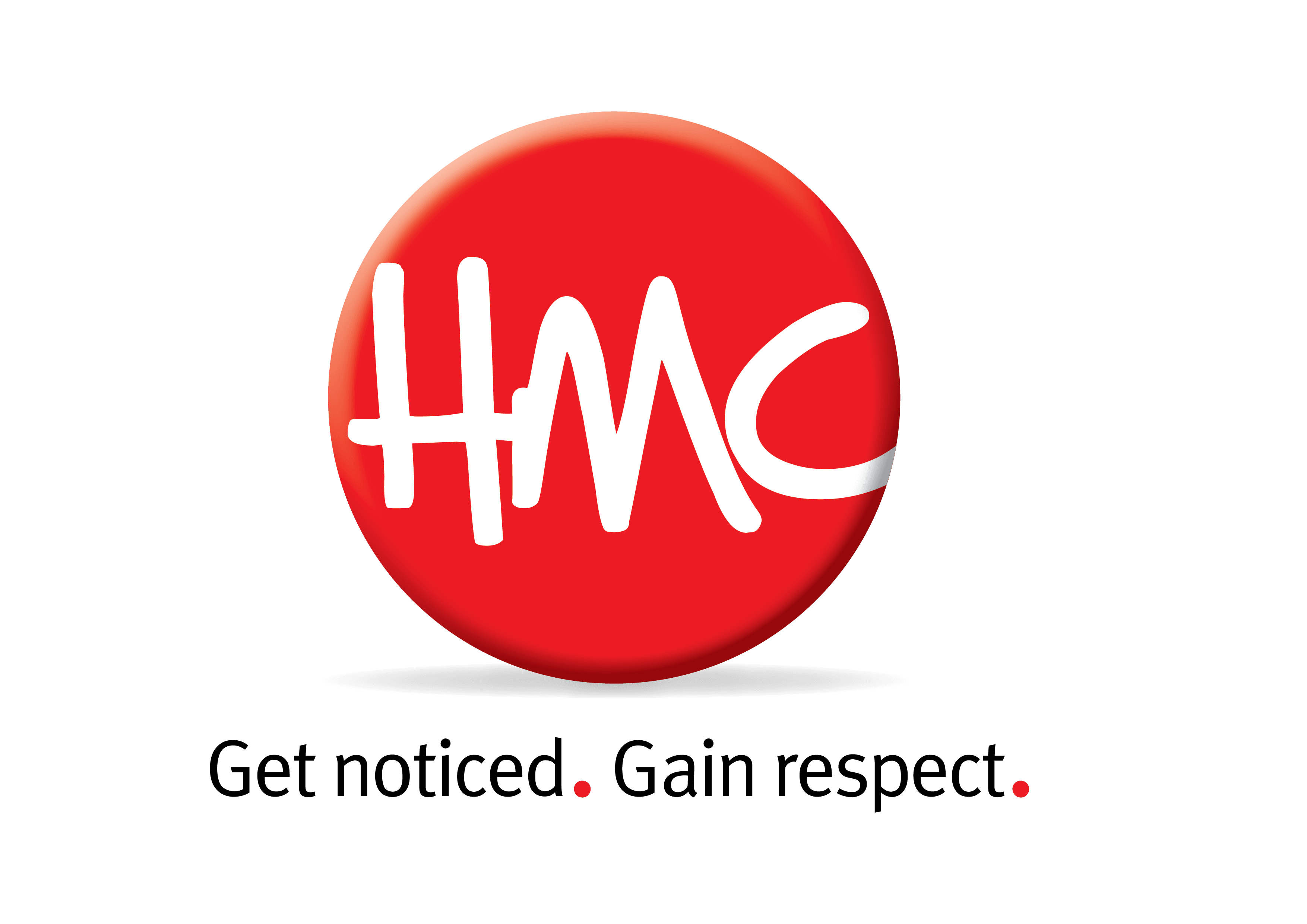Podcasting is a dominant way people are consuming their content. Every second of the day, over 460 million people listen to podcasts, and they are learning about anything and everything. About Brazilian jiu-jitsu. About Elon Musk’s plans to fill the skies with satellites. About how to make a family meal in 15 minutes for under 10 dollars.
Businesses are catching on. Large and small enterprises are podcasting their expertise and personalities to new audiences, and many are expanding as a result. Could your company become one of them?
Three people who can help answer that question are Kane Power, the podcast editor, producer and consultant with Precision Podcast, and Kate Weber and Nicola Lee, PR experts from the award-winning PR firm HMC.
Can a podcast help your business?
For Kate, the power of podcasting is the capacity for businesses to tell good stories.
“It’s helpful to think of podcasts as just another channel for businesses to connect with their audiences. It’s a great way to tell your story while demonstrating your expertise.”
Which begs the question, what should businesses talk about on their podcasts?
Designing content around a Target Audience
In Kane’s experience, the key is to start with a clear target audience.
“People tune into podcasts for one thing: the content. If it scratches where they’re itching, they stay. If it doesn’t, they leave.
“The key to designing good content is to ask, ‘Who is my target audience and what are the issues that concern them?’ It’s the problem-solution approach, and it works.”
Identify Pain Points: To click with your target audience, spend some time inside their heads. What challenges are your customers facing? What are the questions that bother them? What problems would they love someone to solve? These insights will become the foundation for your content strategy.
Provide concrete solutions: Once you’ve identified the pain points of your audience, design each podcast episode to give valuable solutions to specific problems. And be specific. People tune out quickly when you talk in detail about their pain but then offer vague solutions. Kane expands.
“No one likes being teased. What they like is advice they can put into action, or insights that help them rethink a situation. Not only will concrete solutions keep your listeners hooked, but it also positions your business as a credible resource for future problems.”
Demonstrating Expertise: Podcasts allow you to share your knowledge and insights in a conversational way. If you apply your expertise to relevant topics within your sector, you position your company as an authority.
One PR tactic that Kate has used with her clients is to position them as Thought Leaders in their industries.
“Hosting a podcast is an opportunity to showcase your forward-thinking. By commenting on industry trends and emerging topics, you present your company as an innovative thought leader. That builds credibility.
“To help you do that, you can bring in external guests and stakeholders. That in itself will build your reputation and these guests can help you speak to the cutting-edge issues. You can also tap into their channels to get your messages out there.”
Building Trust and Relatability: The human voice is a primary way we communicate our personalities. Podcasts allow people to hear you, which helps them feel like they’re getting to know the real people behind the company brand.
For Nicola, this is one clear advantage that podcasting has over other mediums.
“Not everyone writes well, and it takes a lot of skill to convey personality through the written word. But on a podcast, it’s much easier for a CEO or general manager to give a sense of who they are simply by talking.”
Planning Content
One fear people have regarding podcasting is the demand of continually creating new content. It sounds stressful, and business leaders are hardly looking for more things to be anxious about.
Kane insists it doesn’t have to be that way, and that the key to creating ongoing content is planning.
“Most of the stress evaporates with a good content schedule. A good way to get going with this is to think about your business objectives and your target audience, then start brainstorming on topics. Write down anything and everything without critiquing. At this stage, it’s just an Idea Dump.
“Once the list of possibilities is done, you can review it. You’ll see that some topics can be broken into smaller topics, while others are too skinny to make a podcast episode from.”
After content topics are laid out, the next step is putting the key activities into a calendar:
Deadlines for content expansion
Guests to be invited onto a specific podcast
The date for the podcast recording
Dates for editing + uploading + release dates
How often should you do a podcast?
When it comes to podcasting frequency, Kane, believes that consistency is the key.
“Consistency is more important than how often you do your podcast. Choose a frequency that’s right for you – once a day, once a week, fortnightly, monthly – then stick with it. Continue to do your show on that basis so that your audience can learn to rely on you. It’s a question of trust.”
Kate understands the fear of the workload and has a tip to relieve stress.
“Think about recording a number of podcasts in a single batch. If you’ve got your gear set up, there’s nothing to stop you from laying down two to three sessions in a single morning. Then you can release them according to your schedule. A morning of planned sessions can sort out a months’ worth of podcasting.”
What Equipment Do You Need?
There’s no need to make a huge investment in gear. In fact, it’s better to start with basic equipment and cut your teeth on learning how to use it. You can always upgrade once you feel comfortable. Here’s a list of a few key items:
Microphone: A good quality microphone for clear audio.
Headphones: Decent headphones will help you monitor audio quality during recording and editing.
Editing Software: Choose reliable audio editing software to refine your recordings and add effects. There is a range of editing programmes that are intuitive and super easy to use.
Getting external help
If you want to dip your toes into the pool of podcasting but fear you might drown, getting outside help is a great way to get started.
Planning: HMC are experts in PR and content planning – they can help frame up the business objectives and map out the all-important schedule.
Audio and Editing: outsourcing audio and editing to an expert can make all the difference to the sound quality of your podcast. Or you can bring someone in to teach your people. After the initial lessons, you’ll be away and laughing. Kane from Precision Podcast knows how to get you started.
Marketing: marketing doesn’t have to be complicated, but it does have to be done. No point in creating podcast episodes if no one knows about them. As with audio editing, you can outsource the marketing entirely, or you can bring someone in to train your people on using the various social media, email and website channels.
Learn to surf
With three million channels currently operating, podcasting is a very big wave. The good news, any business can learn to ride it.
Many companies are discovering that podcasting is the perfect medium for building their authority and connecting with people in a way that makes them sound believable and trustworthy.
Maybe your business could be podcast channel 3,000,001.

